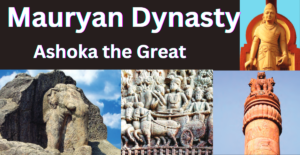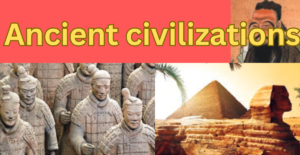Indian National Congress Formation and Early Years:
Indian National Congress History:
- The Indian National Congress (INC) was established on December 28, 1885, at the Gokuldas Tejpal Sanskrit College in Mumbai (formerly Bombay). It was founded by Allan Octavian Hume, a retired Indian Civil Service officer.
- The Congress intended to provide a forum for polite conversations between Indians and the Initially, it only featured educated Indians, who were regarded as more open to modern ideas and thus able to influence others.
- Aside from Allan Octavian Hume, significant figures in the early Congress were Dadabhai Naoroji, Dinshaw Edulji Wacha, Surendranath Banerjee, Badruddin Tyabji, Pherozeshah Mehta, W. C. Bonnerjee, S. Ramaswami Mudaliar, S. Subramania Iyer, and Romesh Chunder Dutt.
- The INC rose to prominence as one of the twentieth century’s most powerful political It gave a forum for Indians to voice their political ideas and was essential in India’s independence struggle.
- Over time, the INC grew to become the primary leader of the Indian independence struggle, spearheading numerous campaigns and movements against British rule.
- The INC’s influence grew throughout India, as leaders from many areas and communities joined its ranks. It became a symbol of India’s nationalist ideals.
Reasons for the Establishment of Indian National Congress:
- Allan Octavian Hume, a former British civil official, founded the Indian National Congress (INC), which conducted its inaugural session in Bombay in 1885.
- According to Hume’s argument, the INC was founded to give a secure platform for Indians to express their opinions and grievances, with the goal of preventing large-scale revolts such as the 1857 Mutiny.
- Another hypothesis holds that the INC was founded to defend British interests by channeling Indian anger into a moderate and manageable political outlet, so preventing violent revolts.
- Gokhale stated that without the British, the INC would not have existed, emphasizing the organization’s unique significance in Indian political history.
- Expression of Indian Demands: Modern historians suggest that the INC arose as a result of politically aware Indians’ desire to build a national organization to communicate their political and economic concerns, rather than as a British ruse.
Phases of the Indian National Congress:
- Moderate Period (1885–1905):The Indian National Congress underwent several phases, including the Moderate Nationalist Period (1885–1905). Characterized by devotion to the British throne.
- Extremist Phase (1905–1916): Harsh British policies fueled the emergence of extremists within the INC, including figures such as Aurobindo Ghosh, Lala Lajpat Rai, Bal Gangadhar Tilak, and Bipin Chandra Pal.
- The Gandhian Era (1917-1947) : saw the growth of Mahatma Gandhi and his nonviolent methods, which helped the INC in its final push for independence.
Objectives of the Indian National Congress (INC):
- Establishment of a Pan-India Organization: The Indian National Congress (INC) sought to develop a democratic, nationalist movement by forming a pan-India organization. It sought to unify people from many regions under a single political banner in the battle against colonial control.
- Anti-colonialism Promotion: The INC aimed to foster friendly relations among nationalist political activists from all parts of the country by creating and spreading an anti-colonial nationalist philosophy. It attempted to bring Indians together in their struggle against British colonialism.
- Inculcating Nationalism: Another goal of the INC was to promote and strengthen national solidarity among all people, regardless of religion, caste, or province. It sought to instill a sense of pride and solidarity in being Indian, transcending regional and communal boundaries.
- Political Education and Awareness: The Congress intended to politicize and educate the Indian people. It aimed to raise awareness about exploitative colonial policies and Indian political rights. To accomplish this, the INC advocated for more Indian representation on councils and the Indianization of the civil service.
- Formulating Public Demands: The INC’s goal was to develop and present public demands to the government in order to rally the people around a common economic and political vision. It attempted to address the problems of the Indian people and advocate for policies that would benefit them.
- Organization and Education of Public Opinion: The Congress intended to organize and educate the nation’s public opinion. It aimed to rally public support for its nationalist objectives and educate people on the significance of the freedom struggle.
- Spreading Anti-Colonial Nationalist Philosophy: The INC sought to develop and promote an anti-colonial nationalist philosophy. It aimed to motivate Indians to be proud of their history and culture while also resisting colonial oppression.
- Maintaining National Unity: The Congress sought to instill and sustain a sense of national unity in all citizens, regardless of religion, caste, or province. It aimed to create a shared Indian identity that transcended regional and communal boundaries.
Features of the Indian National Congress (INC):
- Foundation and Objective: Founded as India’s first national political movement, the INC aspired to expand Indian participation in political matters. Initially centered on this goal, it eventually switched to advocating for complete independence from British rule.
- Evolution as a Political Force: Following independence, the INC emerged as a prominent political institution in India, playing an important role in determining national government and policy.
- Moderate Approach: During its early years, the INC had a moderate posture, largely adopting constitutional techniques and engaging in debates to attain its objectives.
- Limited Demands: Initially, the party’s demands were limited to expanding Indian participation in administration and the military, rather than advocating outright independence.
- Shift to Radicalism: As time passed, the INC’s demands and techniques grew increasingly radical, demanding for complete independence from British rule.
- 1905 Division: By 1905, the INC had split significantly between moderates and extremists. Extremists, known for their radical tactics, urged for more aggressive measures to obtain independence.
- Participation in Nationalist Activities: In addition to the INC, provincial conferences, associations, media, and literature all contributed to nationalist movements, hence enhancing the INC’s impact on India’s independence struggle.
Indian National Congress in the Post-Independence Era:
Forming the Constitution:
- The Congress was instrumental in creating India’s constitution, which is noted for its inclusiveness and liberal outlook.
- It called for the removal of untouchability and caste discrimination, as well as obligatory basic education.
- Early Congress leaders sought to strengthen the Legislative Council’s authority and include India’s elected representatives in government.
- The British Indian government mostly ignored the legislative requests.
Revolution and Initiatives:
- The Green Revolution, which began in the 1960s, sought for self-sufficiency in food production and was supported by Congress.
- The White Revolution in the 1970s and 1980s aimed to enhance milk production and was supported by Congress.
Principles Adopted by the Indian National Congress :
- During the early years of independence, the Congress ruled most state administrations.
- The INC adopted resolutions during its yearly sessions on civil rights, the executive branch, the constitution, and economic matters.
- It emphasized freedom of expression, the press, and the ability to hold assemblies.
- It campaigned for an end to discriminatory administrative practices and the creation of public-benefit programs.
- The INC suggested setting up an agricultural bank to help farmers and opposed discriminatory legislation.
- Later, it began to share power with other national and local parties.
- By the early twenty-first century, Congress’s influence in state politics had dwindled, with control of only a minority of legislatures.
- Congress attacked the British government’s economic policies, calling for economic development and the elimination of salt taxes for low-income individuals.
- It advocated the incorporation of modern industries and the Indianization of government services.





Pingback: Indian National Congress Sessions